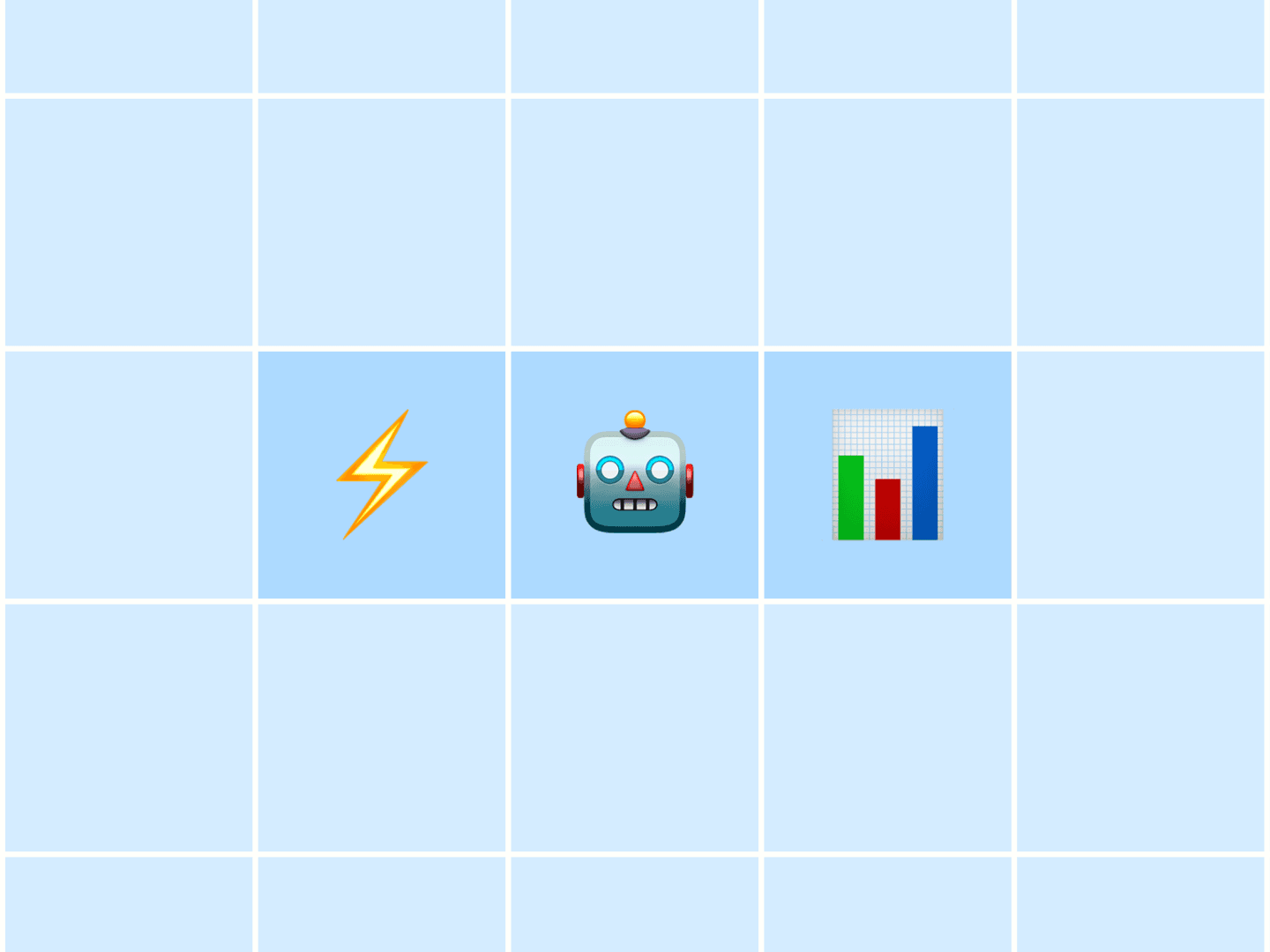“The best things we know and love started as tiny things.” — Joel Gascoigne
Buffer’s CEO, Joel, wrote a post not too long ago about the importance of starting small with new projects. He makes some great points about how easy it is to see the finished product of someone else’s hard work and forget about how long it took them to get to that point:
“It’s difficult to understand how the evolutionary process of products and brands contributes and is vital to what they are today.”
Joel goes on to say that success is more likely when we execute on small projects. Start small and let them grow, essentially.
“Don’t even try to build startups. That’s premature optimization. Just build things that seem interesting.” — Paul Graham
To give us a little insight into just how simple some of the today’s juggernaut web companies were when they started out, I thought it would be fun to do some time traveling in the Wayback Machine. Design can’t tell us everything about what’s happening behind the scenes at a company, but it’s one way to visualize the progress of a product or service over time. Plus, each of these companies’ founders have some useful advice on why they started small and how it helped them grow into the successes they are today.
So let’s take a look at how these major companies evolved from their humble beginnings:
Facebook — “Be in it for the long haul.”
“I’m here to build something for the long-term. Anything else is a distraction.” — Mark Zuckerberg
Zuckerberg’s vision for Facebook is a big one: to make the world more socially connected. Although he started with a small solution to connect college students, Facebook has grown into one of the biggest, most popular social networks alive today, and continues to grow because he’s committed to building out the company over time:
“I know it sounds corny, but I’d love to improve people’s lives, especially socially… Making the world more open is not an overnight thing. It’s a ten-to-fifteen-year thing.”
2004
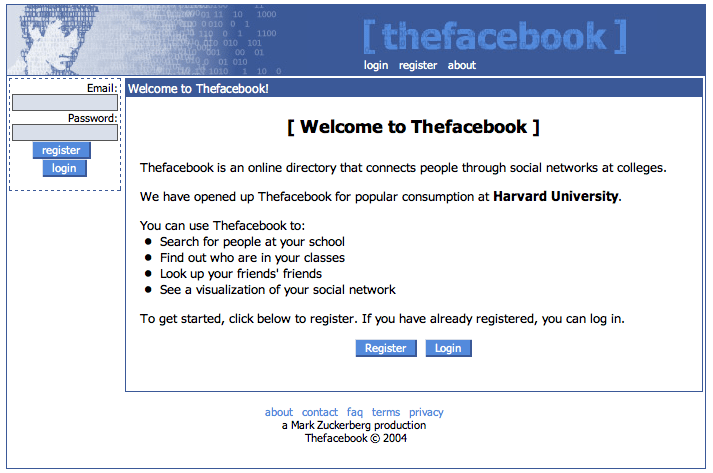
Today, Facebook is bigger and more complicated than it was to start with, but Zuckerberg stays committed to his vision:
“A lot of founding principles of Facebook are that if people have access to more information and are more connected, it will make the world better; people will have more understanding, more empathy. That’s the guiding principle for me. On hard days, I really just step back, and that’s the thing that keeps me going.”
Now
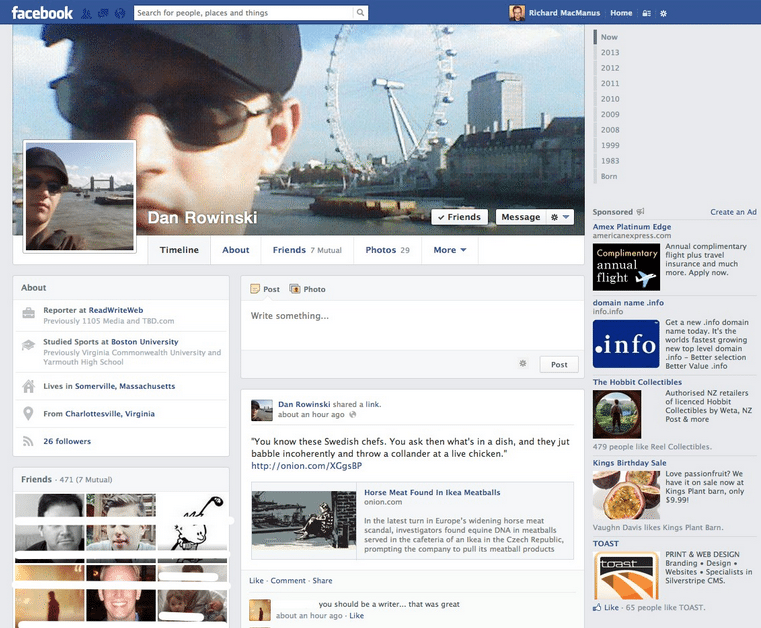
Google — “Do one thing well”
“When Sergey and I founded Google, we hoped, but did not expect, it would reach its current size and influence. Our intense and enduring interest was to objectively help people find information efficiently.” — Larry Page
1998

Google’s design has remained sparse over the years, even as the company has expanded and added more services like Maps, YouTube, Gmail and Drive. When you hit Google.com today, it’s still clear what one thing Google is focused on: finding information.
“We try to, when you come to Google, fulfill that need that you have as quickly as possible.” — Larry Page
Now
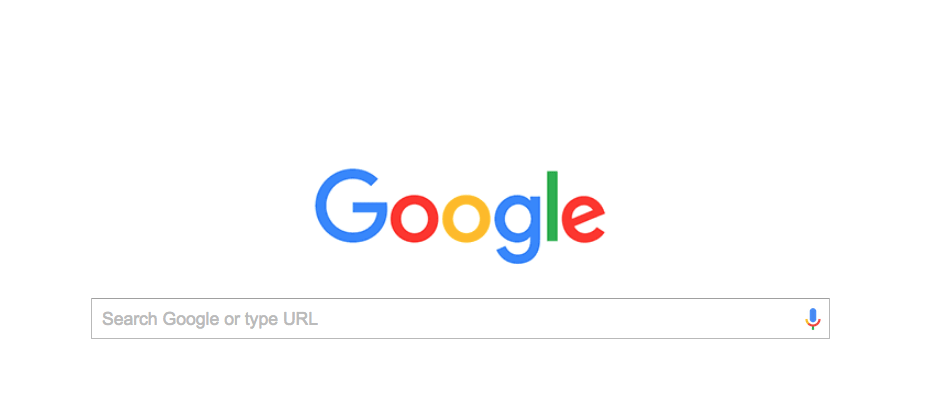
Tumblr — “Build for yourself first”
Tumblr’s founder David Karp created the service to fill a need he had. Blogging was becoming more popular but it was mainly focused on writing — something Karp rightly assumed that not everyone wanted to do.
“You get that big empty box, and it demands that you come up with like a witty headline that convinces people to click over and care about your post, it demands several paragraphs of nicely formatted HTML with little aligned images, and a real editorial voice, real writing.” — David Karp
2007
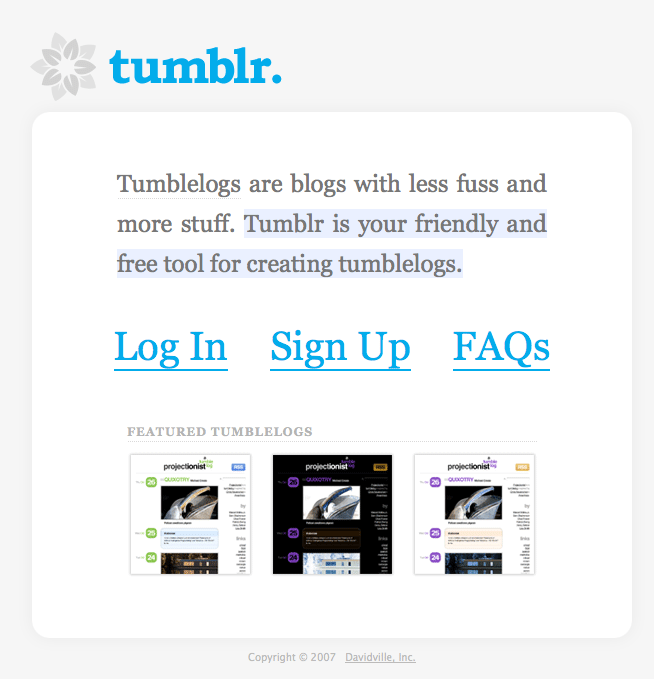
Today, Karp attributes Tumblr’s success – with its vision of “more stuff” including visuals like photos and GIFs – to continuing the strong focus of building something his team loves and uses:
“I think something that is still very true of Tumblr today is it is still a product our team builds for ourselves first and foremost and something we’re excited to use every day, and we spend hours every day using. I’d like to believe that not only comes through in the product, but that it’s kept us close to what Tumblr is really about, kept us from straying too far from that, and that I think kept it true to the original vision.”
Now
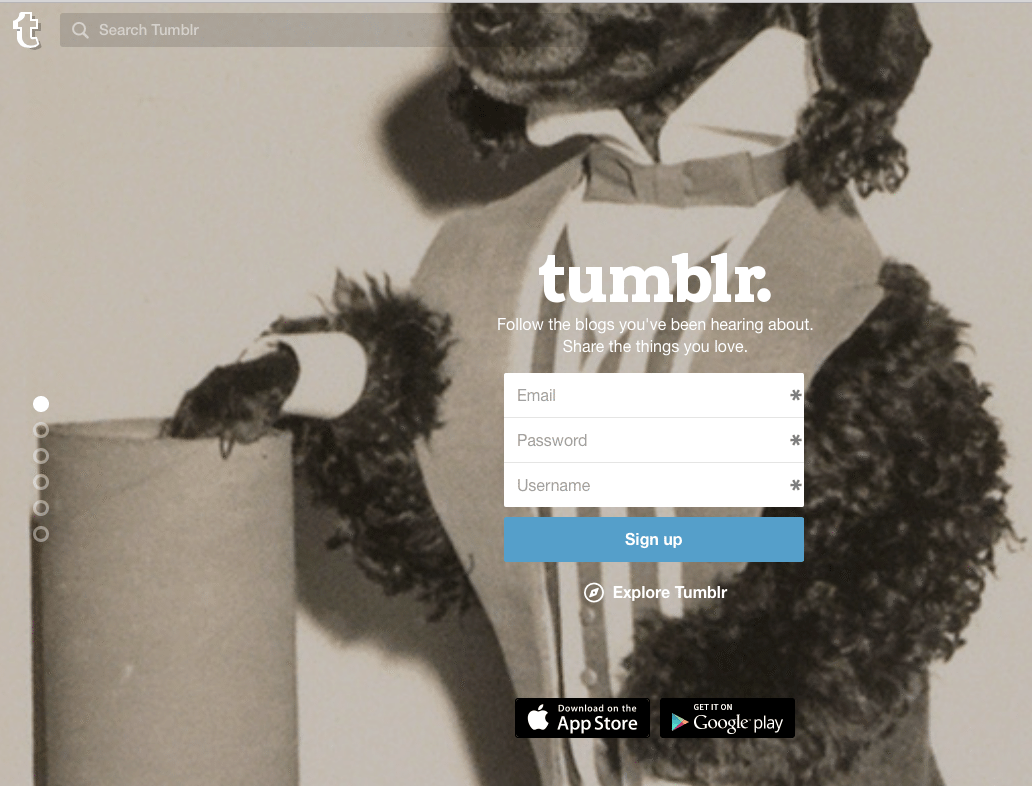
YouTube — “Don’t assume you have the answers”
The YouTube team is committed to testing their assumptions and building based on how the community engages with their product, based on previous experience:
“We had a lot of our own ideas about how the service would evolve. Coming from PayPal and eBay, we saw YouTube as a powerful way to add video to auctions, but we didn’t see anyone using our product that way, so we didn’t add features to support it.” — Chad Hurley
2005
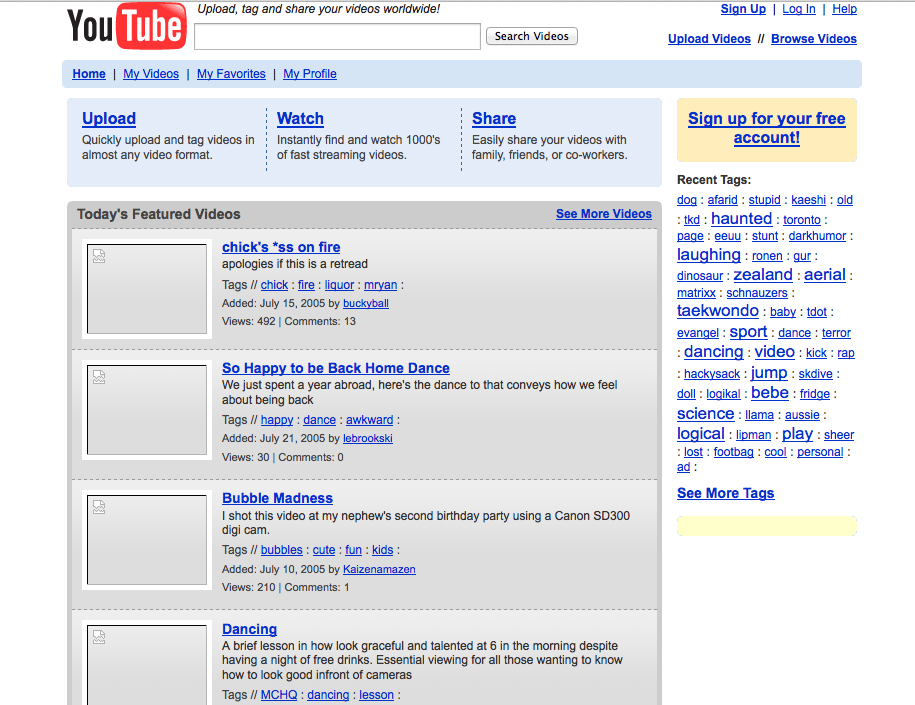
Co-founder Chad Hurley advises other startup founders to test their assumptions and listen to users, rather than jumping into a big product roadmap from the beginning, based soley on your own vision:
As you start building the product, don’t assume that you know all the answers. Listen to the community and adapt.
Now
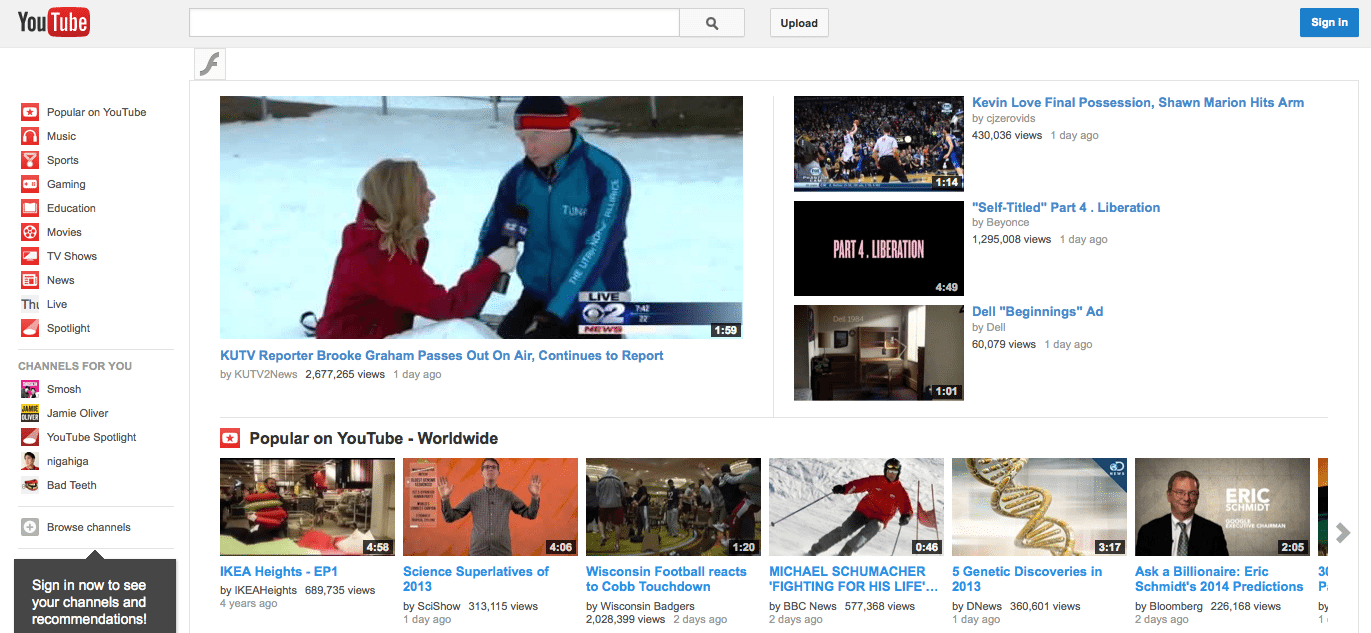
Yahoo! — “Prepare to scale”
Yahoo!, like most of these companies, started out as a very small project to solve a specific problem: the founders had trouble digging up websites they wanted to revisit later, so they started cataloging the web.
“We called it ‘Jerry’s Guide to the World Wide Web.’ Before we knew it, people from all over the world were using this database that we created.” — Jerry Yang
1996
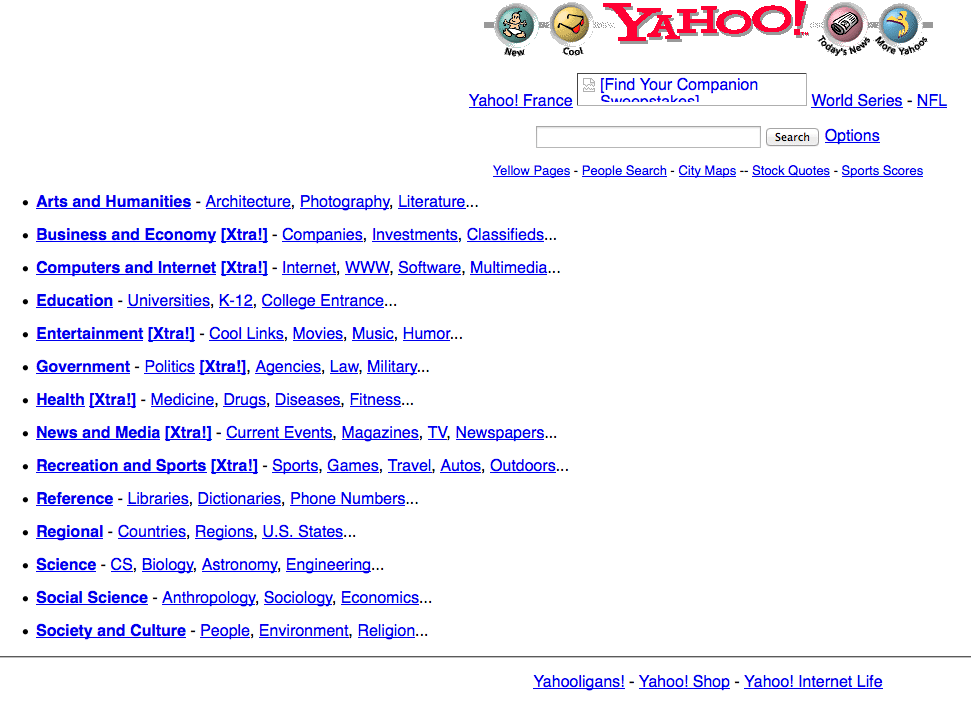
From his experience at Yahoo!, co-founder Jerry Yang suggests being prepared for scaling up your business:
“I think in this business you really have to prepare for the scale involved. And if the business model won’t scale up, then in the end it won’t work.”
Now
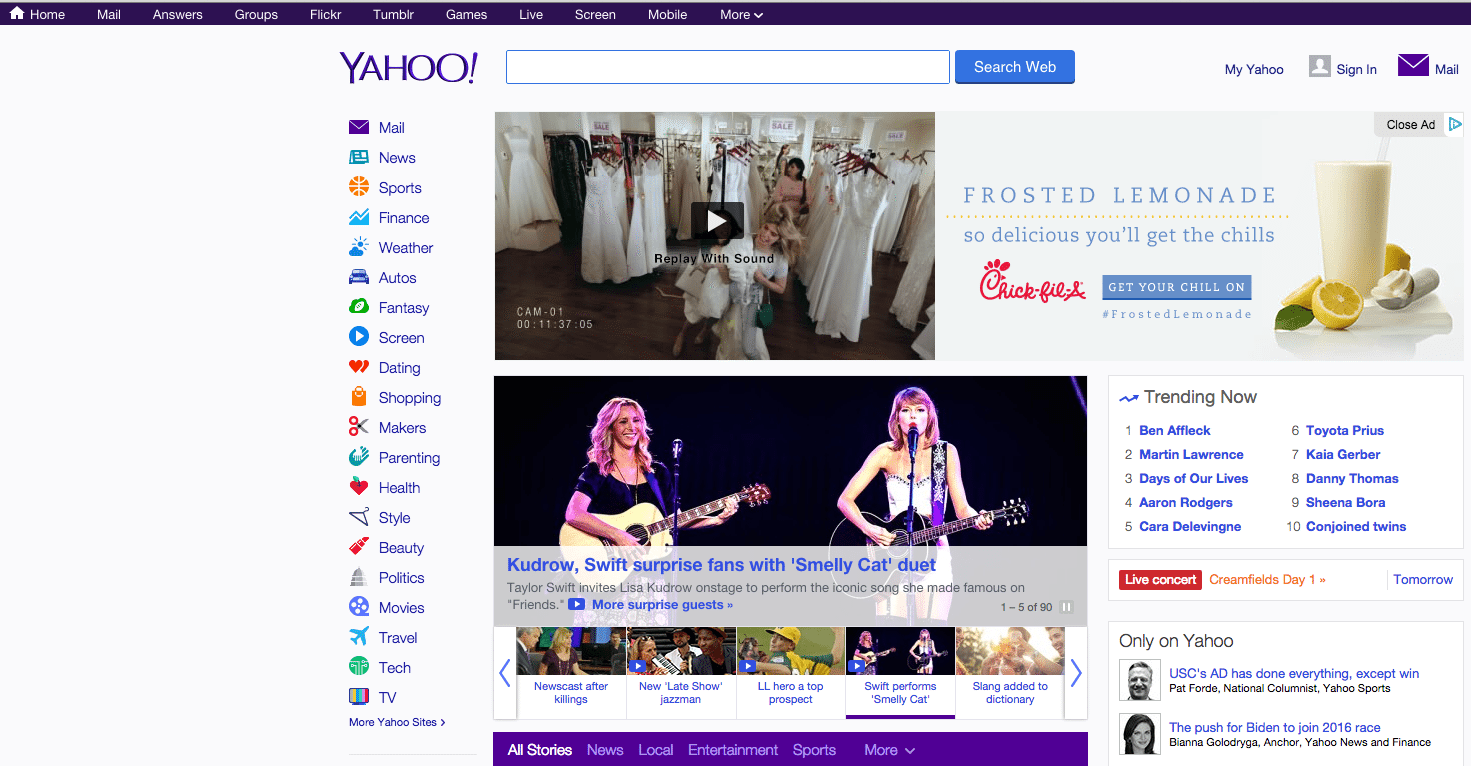
Amazon — “Put your customers first”
“We innovate by starting with the customer and working backwards. That becomes the touchstone for how we invent.” — Jeff Bezos
Amazon’s founder, Jeff Bezos, insists that putting customers first since the beginning has been — and continues to be — the best competitive advantage Amazon has.
“We’ve had three big ideas at Amazon that we’ve stuck with for 18 years, and they’re the reason we’re successful: Put the customer first. Invent. And be patient.”
1999

Since Amazon’s humble beginning as an online bookstore, it’s become a huge online retailer, selling almost everything. But even with huge growth, Bezos remains focused on what customers want:
“When [competitors are] in the shower in the morning, they’re thinking about how they’re going to get ahead of one of their top competitors. Here in the shower, we’re thinking about how we are going to invent something on behalf of a customer.”
Now
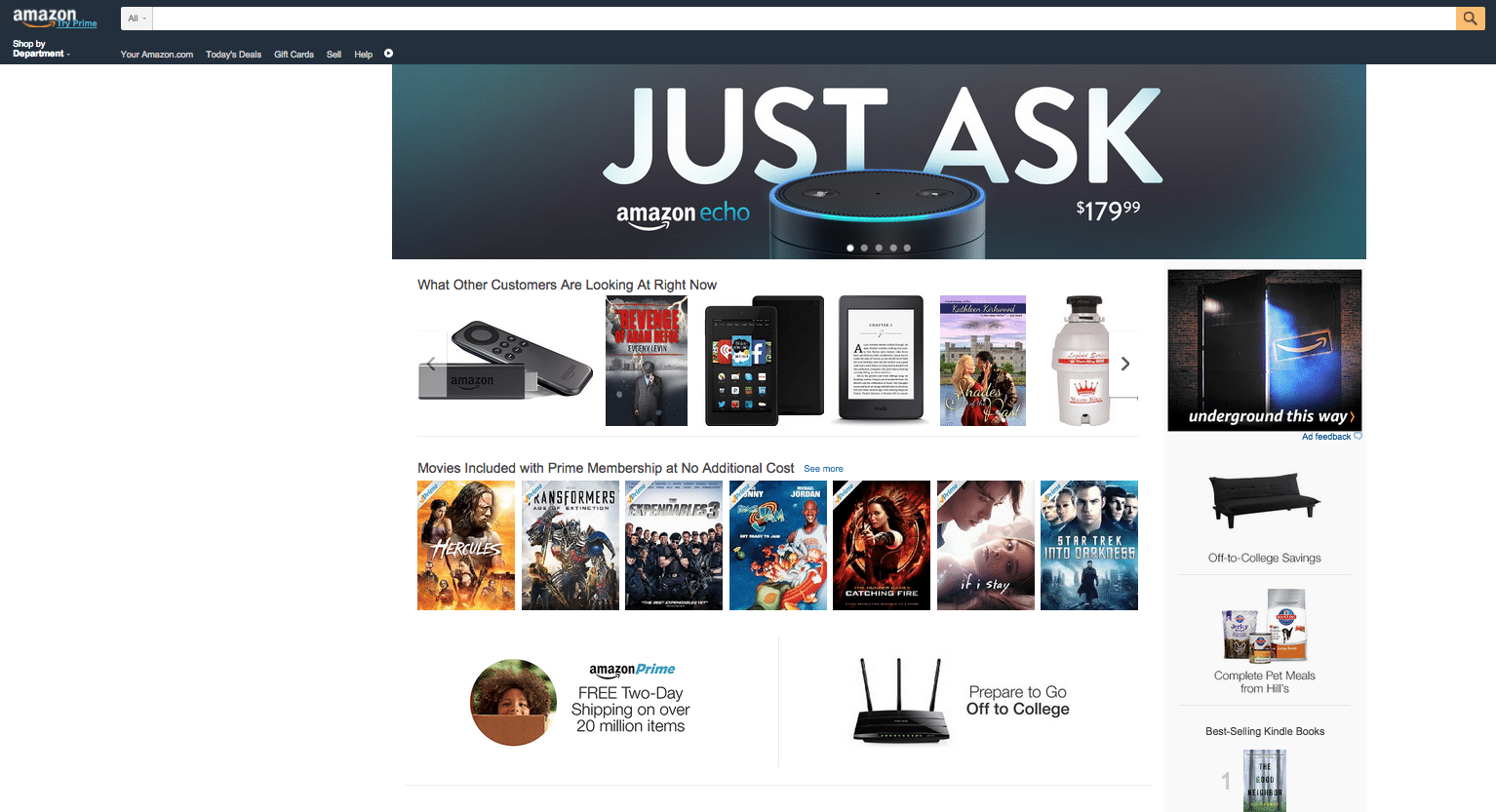
There are plenty of other examples of starting small. In Joel’s post, he shares the example of Dale Carnegie’s book, How to Win Friends and Influence People, which started out as a short talk and some notes on an index card.
Another example I love is the “email-first startup.” Sunrise is a great example: what started out as a daily email digest is now a full-fledged calendar app for iPhone.
Have another great example? Let me know your favorite starting small story in the comments.
If you liked this post, you might also like The Habits of Successful People: They Have a Growth Mindset and People Don’t Buy Products, They Buy Better Versions of Themselves.
Image credits: Complex, Wayback Machine, Toby Bradbury
Try Buffer for free
190,000+ creators, small businesses, and marketers use Buffer to grow their audiences every month.
